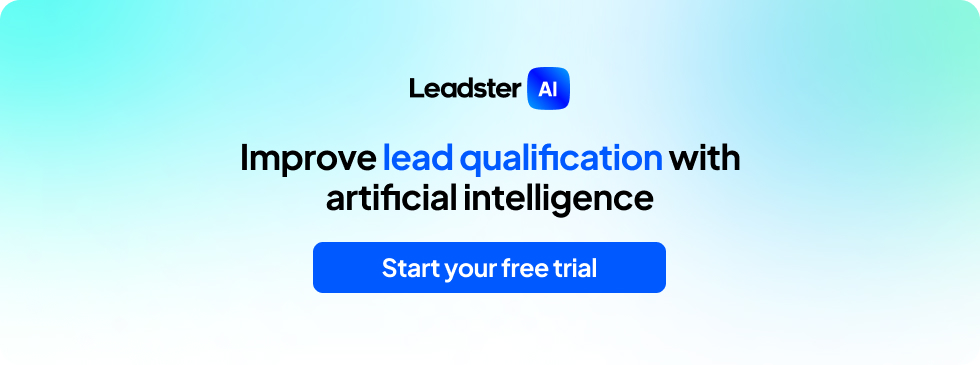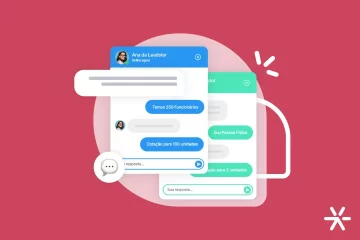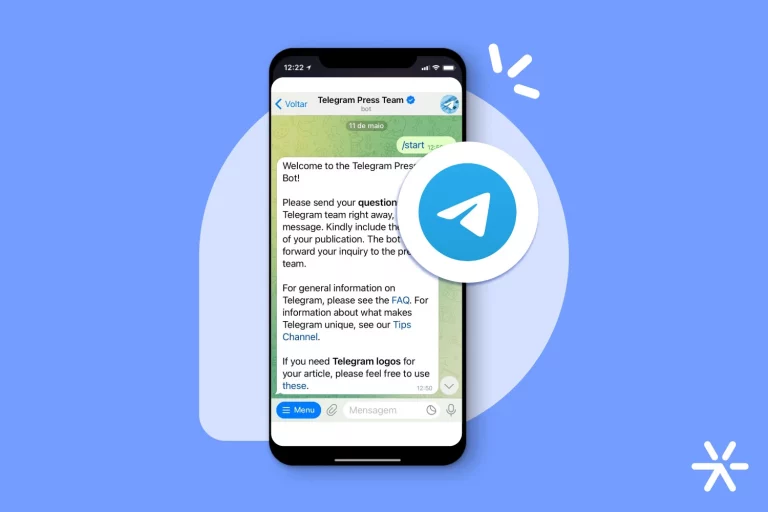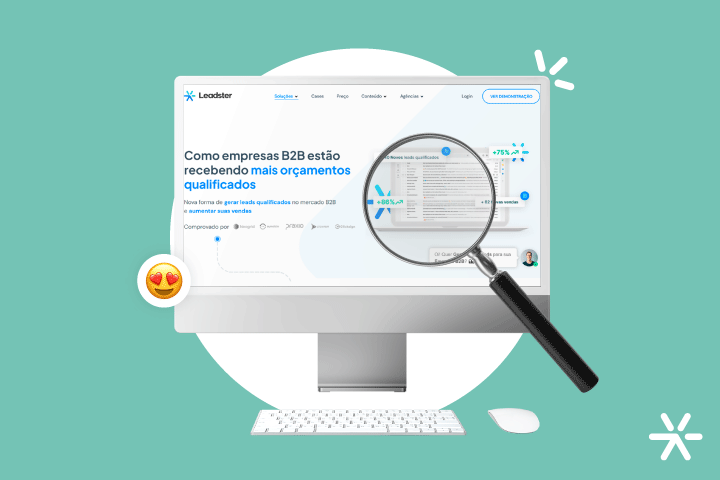Online Chatbot Statistics: Are You Using Them?
The global online chatbot market is about to grow again: it’s supposed to reach US$ 15.5 billion in 2028.
And, as we know, most people prefer to talk to chatbots and virtual assistants over real live agents when they’re browsing a website.
These are just a few of the various online chatbot researches available in the market.
With that in mind, Leadster brings here an overview of this tool in the national and international markets, along with its benefits and forecasts, for those looking to delve into the subject.
Let’s go!
What are Online Chatbots?

Before we delve into the data that encompasses chatbots in the global market, let’s understand their concept.
Online chatbots are software programs that simulate human conversations. They can utilize AI (Artificial Intelligence), conversational marketing, and even natural language processing (NLP).
With this type of tool, it’s possible to instantly engage visitors to your website through specific and personalized messages for each user, as well as providing instant responses.
Overview of Online Chatbots in the Global Market

In addition to the data provided by Markets and Markets, Mordor Intelligence – a market intelligence and consulting company, that’s a real name I swear – has also released a study showing the scope of the online chatbot market. Some of the most notable data points include:
- The largest current market for online chatbots is in North America;
- The fastest-growing chatbot market in the world is in the Asia-Pacific region;
- The main areas of operation are: Retail, Banking, Financial Services and Insurance (BFSI), and Healthcare;
- The major players in the market are: IBM Corporation, Dialogflow, Amazon Web Services, and Live Chat.
In addition to the above information, Mordor Intelligence also provided a map illustrating the growth of the online chatbot market worldwide. Check it out:
One of the factors that may explain the growth of this sector is the advancement of technology, particularly in the field of Artificial Intelligence. Tools with this technology offer faster resolution to customer complaints and issues in 90% of cases, as highlighted by the MIT Technology Review report: Humans + Bots: Tension and Opportunity.
Throughout this article, we will show more advantages of using online chatbots in your business. Keep following along!
Markets That Benefit Most from Online Chatbots
In addition to the aforementioned sectors that heavily utilize chatbots, both in Brazil and worldwide, the segments that profit the most from this tool are:
Real Estate (28%) → Travel (16%) → Education (14%) → Healthcare (10%) → Finance (5%)
And the countries that use them most are:
- United States – 36%;
- India – 11%;
- Germany – 4%;
- United Kingdom – 3%; and
- Brazil – 2%.
The data disclosed is from Collect.Chat.

Why Do People Use Online Chatbots?
Well, now we know how online chatbots are performing in the market, but why is there such rapid growth?
According to the State of Chatbots Report published by Drift, we can see that the most common means of contacting companies are telephone (60%), email (60%), and website (54%). Chatbots appear at the bottom of the list with only 15%.
However, these commonly used channels have been causing frustrations for customers, such as:
- Difficulty navigating websites;
- Problems getting answers to simple questions;
- Basic company details are hard to find.
In other words, we can see that users want quick answers to simple questions.
When questioned, participants provided some situations for which they would use online chatbots since the tool provides a quick and effective response. Let’s see:
- Get fast answers: 37%;
- Resolve a situation or a problem: 37%;
- Get detailed answers: 35%;
The justification for the speed of response of online chatbots can also be corroborated by this research, as participants responded through which channel they expect to receive an instant response.
Their responses were:
- Online chatbots: 77%;
- Face-to-face: 73%;
- Phone: 64%;
- Apps: 55%;
- Social media: 40%;
- Web form: 34%;
- E-mail: 27%;
- Letter: 16%;
But if people already expect to get a quick response through chatbots, why aren’t they among the main communication channels used by companies?
Some of the main concerns of end-users are:
Preference for dealing with humans – 43%;
Concern about the possibility of errors in the chatbot – 30%;
Being stuck with chatbots only through messaging platforms like Facebook Messenger – 27%.
These responses show that there is still a myth about chatbots, with some people thinking that the tool will not be as effective in responding to their visitors or that there will be “bugs” all the time. Therefore, it is necessary to clarify what their advantages are.
Let’s go!
Benefits of Online Chatbots
The report published by Drift listed three main advantages of using chatbots, as answered by the respondents: 24-hour service, instant responses, and answers to simple questions.
However, we can list many other benefits for this tool, such as:
- Convert more website traffic – chatbots, especially those for conversational marketing, help attract customers, using just a simple message to grab attention and convert visitors into leads;
- Generate more qualified leads – all essential data can be collected by the chatbot; with it, you can ask the right questions to characterize the potential customer and qualify them.
- Automate your processes – imagine how much time your team spends responding to hundreds of emails, social media inquiries, and even answering the phone. All this time can be saved with a chatbot on your website. There, users can get the main information they need, as well as address most of their questions.
- Improve customer service – with the online chatbot, your customer will have instant responses, as well as 24/7 service.
The data doesn’t lie
To further clarify the advantages of using a chatbot in your company, let’s look at more research that proves the efficiency of using chatbots in businesses.
- According to data released by Forbes, business leaders say that chatbots increased sales by 67%;
- According to the report, “Chatbots are here to stay – So what are you waiting for?” from Accenture, 57% of companies say conversational chatbots provide substantial ROI with minimal effort;
- As CNBC reports, chatbots are designed to save $0.70 per customer interaction, resulting in $8 billion in savings yearly;
- Finally, according to research by Hubspot, 47% of customers are open to purchasing items through a chatbot.
The Best Chatbot Platforms in the Market

Now that you already know the global landscape of chatbots, their advantages, and growth forecast, it’s time to get to know some of the best chatbots in the market to implement in your company.
Leadster
Leadster’s chatbot focuses on sales and marketing.
In addition to increasing lead generation and conversion rates for websites and landing pages, the tool offers an active approach, conversation personalization, A/B testing, dashboards, and lead qualification.
Drift
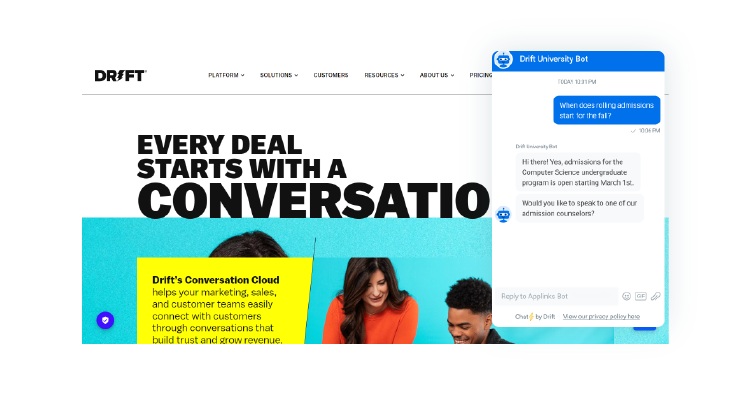
We’ve mentioned Drift a lot here to provide data on online chatbots, but the company also has its own tool.
Drift’s software is a comprehensive option for those looking to invest in chatbots for marketing and sales.
In addition to its focus on conversion, the platform offers customized experiences, sales pipelines, lead segmentation and analysis, reports, and more!
JivoChat
For companies considering chatbots for customer service and support, JivoChat is one of the best options.
The tool can be used on websites, e-commerce sites, WhatsApp, Facebook, Instagram, and email.
JivoChat offers a free 14-day trial. After this period, the cost of the paid version starts at R$49 per month, increasing based on the duration of the subscription and the number of operators required.
We’ve reached the end of our content on the global landscape of online chatbots!
What do you think about not falling behind these results from the tool and taking a look at the free demo that Leadster has prepared for you?
Just click on the link! There’s a 14-day free trial waiting for you – no credit card required.
Thank you for reading and until the next one!
